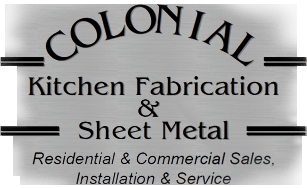3 Reasons to Use Stainless Steel on Your Food Trailer
- By Admin
- •
- 19 Nov, 2018

Kitchen-grade stainless steel is a safe, easily sanitized material when installed properly inside your food trailer or truck. Stainless steel also enhances and protects the exterior of your food trailer. Read the blog to learn about three important reasons to install stainless steel materials on your food trailer.
1. You Meet Strict Regulations in Other States
In South Carolina, all mobile food businesses must legally have two parts. One segment of the business is the commissary where employees store and sometimes prepare food. The second component of the mobile food business is a mobile unit (or several) where employees prepare, cook, and serve food to the public.
The South Carolina Department of Health and Environmental Control inspect the commissary and the mobile unit separately. Regulations vary for the two branches of the mobile-food business, but stainless steel is one approved material for specific portable kitchen applications.
Inside your food trailer, you may be able to get by with surfaces that are not stainless steel due to the specific wording of the South Carolina regulations. However, if you want to sell your food at festivals and events outside of South Carolina, you must research and comply with food service rules set by other state officials.
Use the strictest state rules to fabricate your food trailer. For example, in Chicago, using any rubber tubing for propane gas lines in food trucks or trailers is illegal. All lines must be hard-lined and made of steel or copper materials. Investing in stainless steel features now can mean more sales in the future.
2. You Keep Your Food Trailer Rodent Free
Rats and mice are problems for people in places like New York City or Chicago. But, Charleston doesn't have rodent issues, does it? Actually, thanks to flooding and urban abundance, rats and mice are problems in the Lowcountry, too.
If you park your food trailer in winter, rodents target it for warmth and sustenance. Rats and mice can chew through wood, plastic, and even some thinner metals.
Rodents damage food trailers and trucks by nesting in:
- Engine compartments
- Ductwork and exhaust hoods
- Stoves and fryers
- Dry storage areas
- Taillight covers and lamp-access spaces
If your food trailer has rust holes, dangling wires, rocker panels, or side vents, a rat or mouse can make its way inside your food trailer. Installing durable stainless steel on the outside of your food truck or trailer is one way to keeps rodent from chewing their way inside.
A stainless steel food trailer exterior deters rats from chewing their way inside the mobile unit. A stainless steel trailer can reduce and eliminate rodent infestations. Place metal or mesh covers over your tailpipe and ductwork, seal all cracks and crevices, and remove all food ingredients from your trailer for extra measure.
3. You Want Ultimate Fire Protection
Whether you cook burgers or pizza, fire protection is paramount in your food truck. Most states' food trailer codes require the use of non-flammable material for all wall surfaces behind any cooking line. This includes walls behind:
- Woks
- Fryers
- Grills
- Countertop ovens or broilers
- Stoves
Stainless steel is a great non-flammable choice for your food trailer's walls. Consider placing stainless steel on all interior walls, floors, and ceilings for enhanced fire safety.
Outfit your food trailer with high-quality stainless steel walls, counters, and prep areas by contacting Colonial Kitchen Fabrication & Sheet Metal today. We install kitchen materials in food trailers and trucks throughout the Lowcountry. We are happy to answer all your questions about stainless steel and the ways it benefits your food trailer. We also offer custom solutions and competitive pricing.








